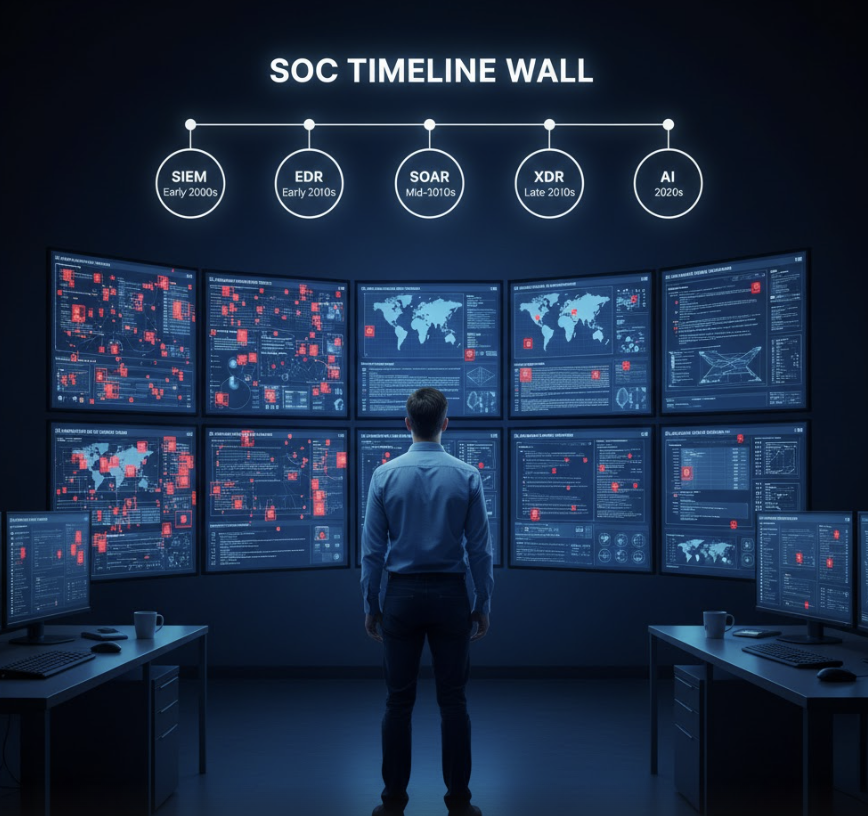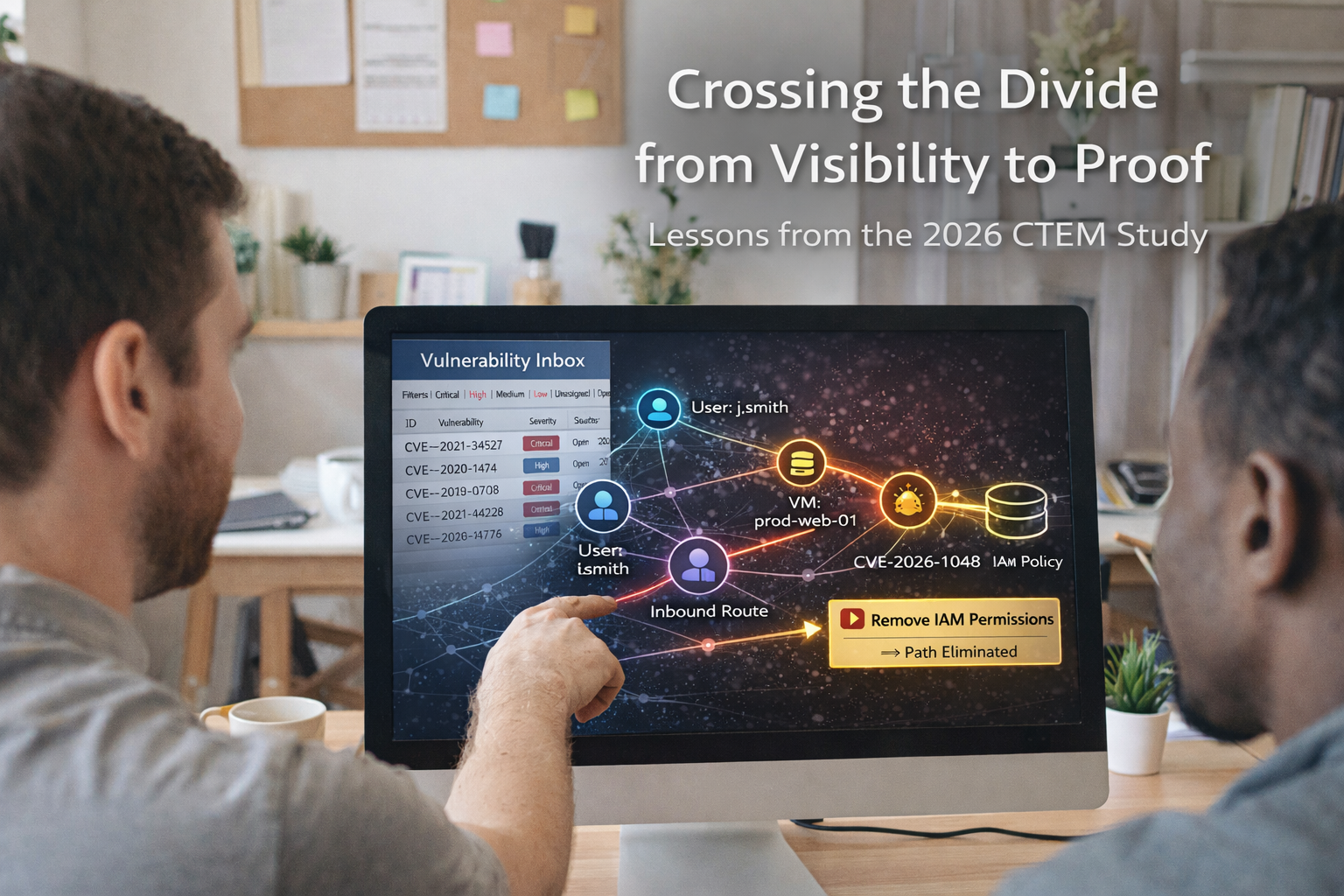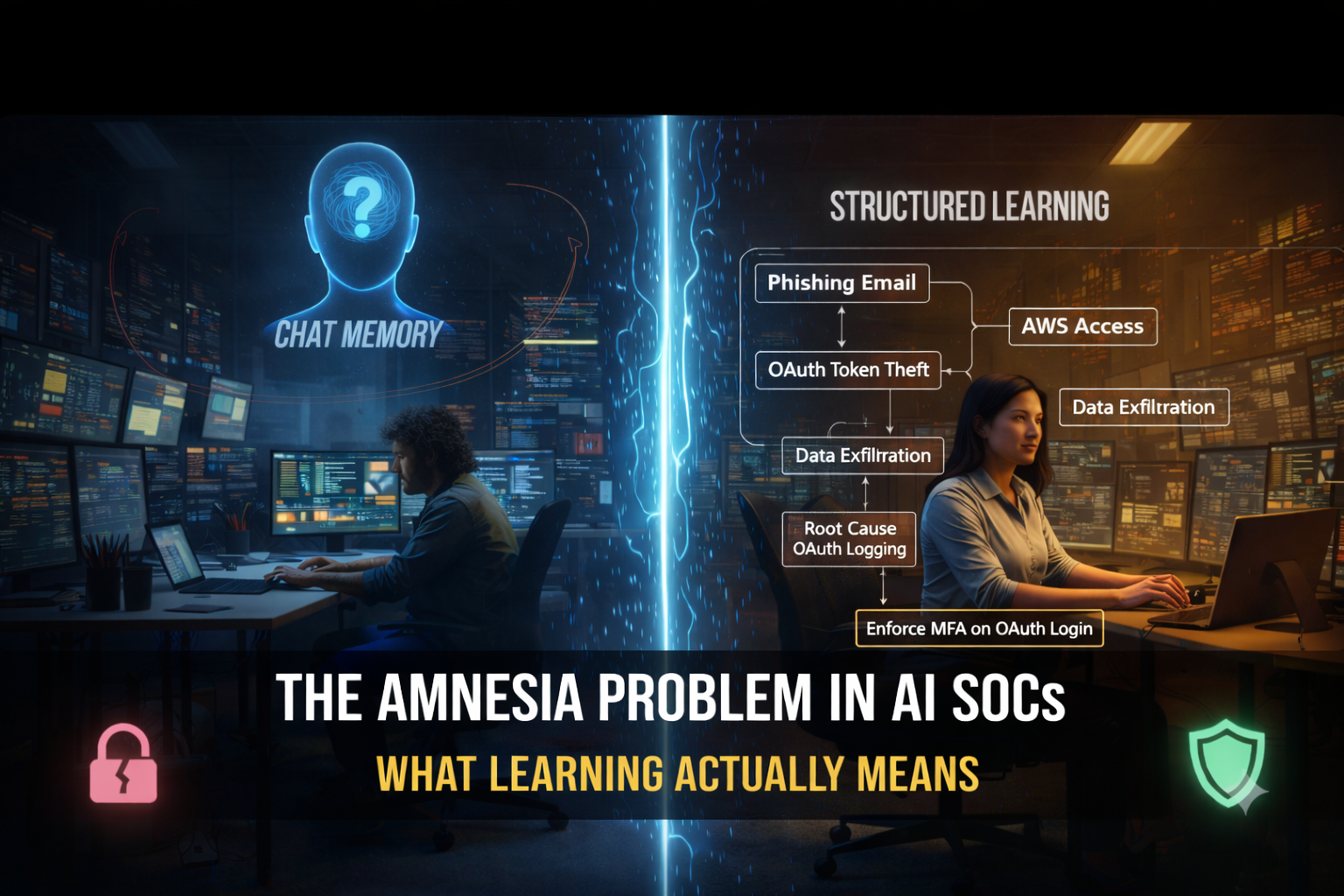The Moment AI Walked Into the SOC

Picture this.
You’re in your SOC. It’s late. The dashboards are glowing, the alerts are piling up, and the same question every security leader asks themselves is sitting in the back of your mind.
How in the world are we supposed to keep up?
You’ve hired smart people. You’ve bought the tools. You’ve automated the basics. You’ve cleaned up processes that were duct-taped together in 2018. You’ve even convinced finance to let you add a headcount or two.
And yet the gap keeps widening.
The threats are faster. The investigations are heavier. The playbooks are more complicated. The stack is louder than ever. And your team is expected to move like a Formula One pit crew while managing risk that can topple a company.
Then one day, something interesting happens.
Someone walks into your office and says, “Hey, have you heard about these AI SOC agents?”
You raise an eyebrow because you’ve heard this pitch before. It usually comes with a slide full of glowing brains and promises to “revolutionize” everything.
But this time it feels different. Not because the tech is magic. Not because it’s replacing humans. But because it’s doing something much more practical.
It’s helping your team breathe again.
So what are these AI SOC agents, really?
Well, for starters, they’re not robots … not yet anyway. They’re not junior analysts with perfect memory. They’re not going to run the SOC while you sip coffee on a beach somewhere.
They’re assistants. Teammates. Extra hands. A way to multiply the time you already don’t have.
Gartner captures it well in their latest “Innovation Insight: AI SOC Agent.” Security teams aren’t failing because they’re not talented. They’re failing because the volume of work exceeds the number of people available to handle it.
That’s the backdrop that makes AI SOC agents interesting.
These systems sit inside your workflows, just like a good coworker. They help with the annoying stuff. The repetitive stuff. The part of the job that eats hours and gives almost nothing back.
They triage. They enrich. They help hunt. They map attack paths. They summarize cases. They tell you where the noise is coming from. They watch what your team does while trying to learn from it…and they surface the one indicator your analyst might miss at 2:13 a.m.
Maybe most importantly, they bring consistency to a job that’s often defined by chaos. But to remember, of course, none of this works if your data is a mess. AI only amplifies what you feed it.
A story from the trenches
How many SOC leaders have lived through this moment?
Your junior analyst is staring at a console filled with alerts. None of them looks particularly deadly. None of them looks obviously benign either. They start bouncing between tools. Clicking. Copying. Pasting. Even Googling.
Forty minutes later, they come to you and say, “I think this one might matter.”
Now, imagine that instead of digging through 900 lines of logs, they start with a simple question. “What am I looking at?” And then the system answers.
It pulls context. It checks other tools. It compares events. It remembers what your environment looked like yesterday. It gives your analyst a picture of the situation before they ever open a second tab.
And that’s not magic, and it’s certainly not perfect. But it is faster. Much faster. And that speed changes everything.
Why Gartner says this matters now
Gartner says we’re not even close to replacing human operators.
But that’s not the point anyway. At least not any time in the near future. The point is to support the team you already have so they can actually get to the work that matters. The work computers still can’t do. The work that makes your SOC better, instead of just less behind.
Their report breaks the landscape into two camps:
• Vendors trying to automate entire workflows
• Vendors focused on helping your team do work more efficiently
That second category is where we should focus today. Because if you’re honest with yourself, it’s probably the easy problems that your SOC isn’t drowning in. Alerts that don’t matter. Investigations that lead nowhere. Repetitive data pulls. Context gathering. Report writing. Re-running playbooks you’ve already used 100 times.
But this is where AI SOC agents shine.
The biggest benefits aren’t what you think
Gartner lists the obvious ones.
- Less workload
- More consistency
- Better enrichment
- Faster decisions
- Retained knowledge
But the main one we’ve seen leaders care about once they see these systems in action is your people getting time back. Actual hours in the day. Hours they can spend improving detection logic, strengthening controls, practicing real hunts, training junior team members, reducing debt, and measuring outcomes.
We’re talking hours they haven’t had in years. When you combine that with more consistent triage and cleaner investigations, something amazing happens.
Your team’s confidence rises because they can now breathe. And when smart people get room to breathe, they produce better work.
The risks you should care about
Let’s not kid ourselves, either. There are risks here. You can’t deploy this and expect an autonomous SOC. You can’t hope it fixes your staffing issues. You can’t trust every output blindly. You can’t buy the hype. And you absolutely can’t walk into this thinking, “maybe we can cut the team if the AI works well.” That’s the fastest way to poison the whole project.
AI SOC agents work best when your team sees them as partners, not threats.
There’s also the very real problem of vendor volatility. This market is young. Some companies will get acquired. Some will vanish. Some will promise more than they can deliver, so you need guardrails.
Start with one-year commitments. Start with a narrow set of use cases. Start with metrics that matter to you, not to the vendor. Start with oversight. Start by outlining how this tech fits into your operating rhythm. If you do that, then the risks become manageable.
Where is this all heading?
First, as we should all know, AI doesn’t magically fix a broken SOC. If your data is inconsistent, your processes depend on tribal knowledge, or your tools buckle under load, the AI will hit the same walls, just faster. I guess there is some benefit there, but teams seeing the most success are the ones who tighten the basics: clean telemetry, clear ownership, and metrics that matter. With that foundation in place, AI agents will have room to deliver real value, and then we enter a new phase in security operations … Augmentation.
And to be frank, the future isn’t an empty SOC run by software. It’s a SOC where humans and AI work in the same direction, each doing what they do best.
Humans handle ambiguity. Creativity. Judgment. Strategy.
AI handles scale. Repetition. Consistency. Correlation.
Put those two together and you get something we haven’t seen in security in a long time. A chance to keep up and even get ahead of the bad guys.
If you take anything away from this analysis, let it be this. Before you buy an AI SOC agent, ask yourself one question. What exactly do we want more time for? If you know that answer, the technology will help you get there. If you don’t, the technology won’t save you.
Because AI doesn’t transform a SOC on its own, it transforms a SOC that knows where it wants to go. And if you get that part right, this next chapter in security operations will feel like relief.


